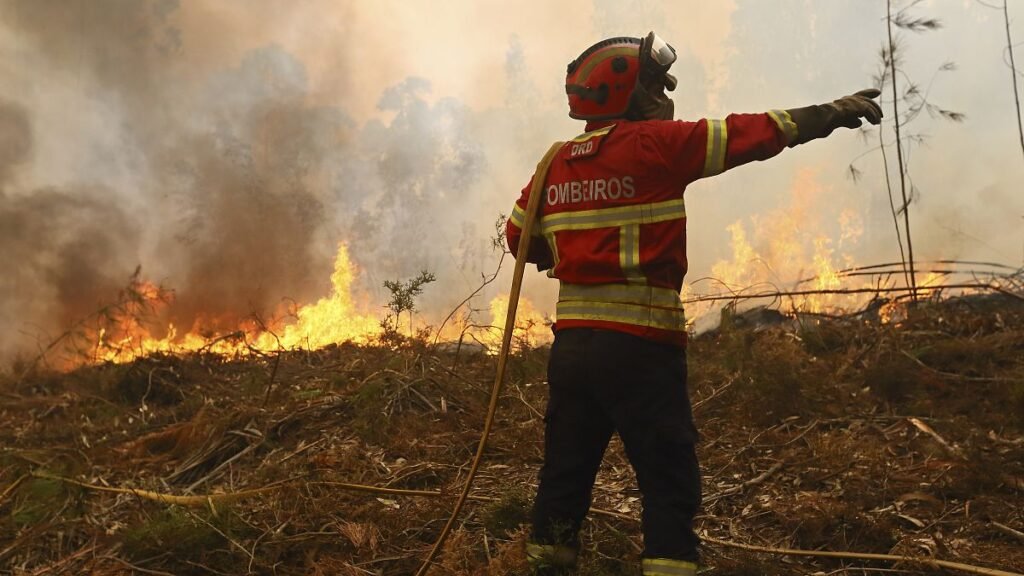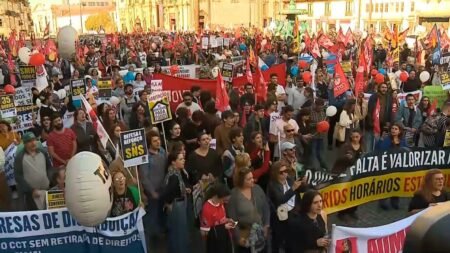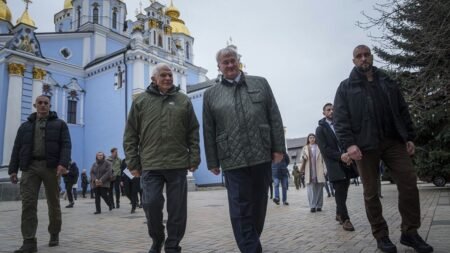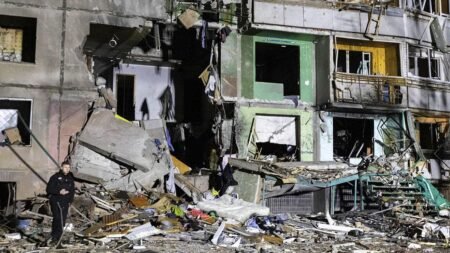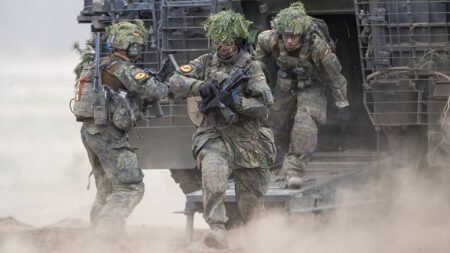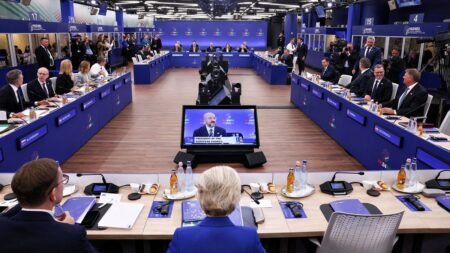Emergency services have reported 90 active incidents in mainland Portugal, with 17 fires currently raging and 60 approaching their end stages.
Portugal continues to mobilise its forces and resources to combat the wildfires that have been raging for several days around the western city of Aveiro.
The fire in Pessegueiro do Vouga is still active with more than 500 firefighters on the ground, while the blaze in Castro Daire “continues to rage with great intensity”, forcing firefighters to move to where they are most needed, Portugal’s emergency services told Lusa news agency.
At 6:30 am local time, 426 operatives were mobilised to combat the fire, supported by 108 vehicles in Soutelo and 122 firefighters in Moção.
The fire in Arouca is also still active, with more than 230 operatives and 71 land resources dedicated to putting it out. It broke out on Tuesday night and has already destroyed around two kilometres of the Paiva Walkways, a popular nature walk, and continues to burn with “medium intensity”, the municipality said yesterday.
Schools in the area were kept closed on Thursday.
Rain to provide respite
The weather appears poised to become a valuable ally in combatting the fires.
The Portuguese Institute for the Sea and the Atmosphere (IPMA) has pointed to a drop in maximum temperature for Thursday, in addition to periods of heavy clouds with showers in the afternoon in the centre of Portugal.
The IPMA has also forecast an increase in humidity and a reduction in the wind, all of which combined are expected to provide valuable help to those on the ground fighting the fires.
Despite the change in the weather, the municipality of Penela, in the district of Coimbra, remains in maximum danger.
Various municipalities in the following districts are also still rated as being in high danger of fire: Santarém, Coimbra, Leiria, Castelo Branco, Coimbra, Portalegre, Guarda, Aveiro, Braga, Viana do Castelo, Porto, Vila Real, Viseu, Bragança and Faro.
Climate crisis to blame for the disaster, says UN chief
António Guterres does not doubt that the fires in Portugal, in addition to floods that have ravaged parts of Central Europe, are down to the climate crisis.
Responding to a question in Portuguese, the UN secretary-general said in a press conference on Wednesday that “the climate crisis is a multiplying factor in all the tragedies we are witnessing”.
“It is absolutely clear that the worsening of the fires in Portugal, the worsening of the floods in Central and Eastern Europe, the worsening of the floods in Nigeria, have a direct relationship with the worsening of the climate crisis,” he said.
Five lives lost
Since Sunday, more than 106,000 hectares have burned in mainland Portugal, mainly in the north and centre of the country, according to Copernicus, the Earth Observation unit of the EU’s space programme.
The fires have so far claimed five lives.
On Wednesday, a funeral was held for João Silva, the 60-year-old firefighter who died last Sunday while taking a break in Oliveira de Azeméis.
Portuguese President Marcelo Rebelo de Sousa and Minister for Internal Affairs Margarida Blasco attended the ceremony.
Read the full article here







